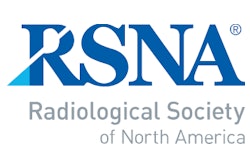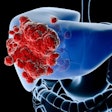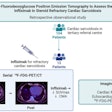Dear AuntMinnie Member,
Placental insufficiency is a leading cause of fetal growth restriction (FGR) and adverse outcomes. Unfortunately, reliable biomarkers aren't available for determining at which point placental failure adversely affects the fetus. As a result, placental disease may only be discovered after fetal growth has already been impaired.
Using 3D MRI features and artificial intelligence, however, researchers from Children's National Health System in Washington, DC, found they could predict FGR with a high degree of accuracy. The machine learning-based approach also performed well in predicting birth weight.
Their method for assessing placental health in vivo is already yielding important insights into normal and abnormal placental development, and it could also pave the way for future therapeutic interventions to protect vulnerable fetuses, according to the group.
Click here for our report, or stop by our Artificial Intelligence Community at ai.auntminnie.com.
DBT in dense breasts
Can digital breast tomosynthesis (DBT) be trusted for screening women with dense breasts? Yes, it can, according to recent research by a team from Spain.
A group from Complutense University of Madrid found that DBT and full-field digital mammography (FFDM) produced comparable breast density measurements -- leading to equivalent BI-RADS classification. What's more, the team found that median radiation dose values for dense breasts were similar for both imaging modalities.
As a result, the researchers concluded that DBT could replace FFDM for screening purposes. Click here for Editor Kate Madden Yee's report on the research, or visit our Women's Imaging Community at women.auntminnie.com.
Minnies nominations
We're now accepting nominations from our members for the Minnies -- AuntMinnie.com's annual event recognizing excellence in radiology.
Each year, the Minnies enables radiology professionals to acknowledge achievement in medical imaging. For the next several weeks, you can submit your Minnies nominations in various categories, ranging from Most Effective Radiology Educator to Best Radiology Mobile App.
Nominations will be assembled into a list of candidates that represent the finest of the finest in radiology. Our expert panel will then select the winners through two rounds of voting, with trophies to be presented at RSNA 2017 in Chicago.
Do you know someone who deserves a Minnie? Click here to submit your nomination. The list of winners from last year's edition of the Minnies can also be found by clicking here.



















